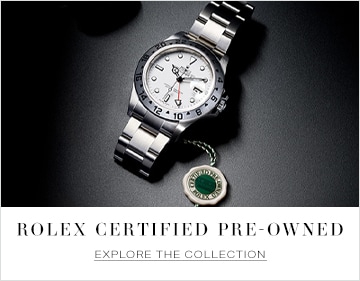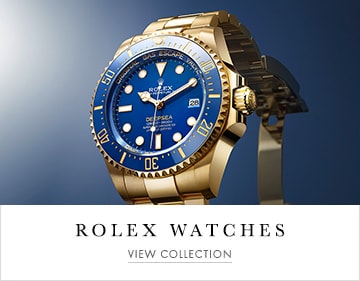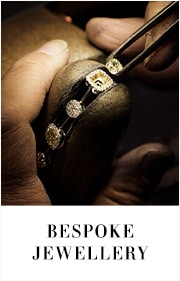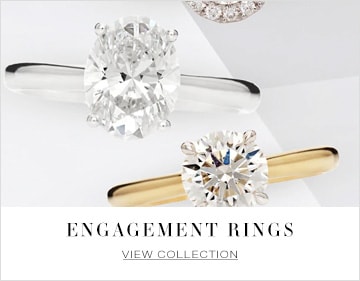-
Watches
By Category
Anytime. Anywhere.
By Collection
By Brand
-
Rolex
By Category
By Collection
- Rolex Certified Pre-Owned
-
Pre-Owned & Vintage
By Category
-
Brands
Watch Brands
Jewelry Brands
-
Jewelry
By Metal
By Gemstone
By Collection
By Edit
By Brand
-
Engagement
By MetalBy StyleBy Cut/ShapeBuild Your Ring
-
Wedding
By MetalWedding JewelryEditorial
- Sale
-
Sell Your Watch
Sell Your Watch
We will expertly assess your watch and offer you
a competitive and accurate valuation for the
watch you wish to sell to us.Free valuation by our experts
Unrivalled knowledge & expertise
Competitive prices offeredBrands we buy
A. Lange & SohneAudemars PiguetBlancpainBreguetBreitlingCartierIWC SchaffhausenJaeger-LeCoultreLonginesOMEGAPatek PhilippeRolexHeuerTudorVacheron Constantin - Stores
- Shop by Category
-
Watches
- Back
- Shop All Watches
- By Category
- Anytime. Anywhere.
- By Collection
-
By Brand
- Rolex
- Angelus
- Arnold & Son
- Berd Vay'e
- Blancpain
- Bovet
- Breitling
- BVLGARI
- Carl F. Bucherer
- Cartier
- CHANEL
- DOXA
- Girard-Perregaux
- Grand Seiko
- Hamilton
- H.Moser & Cie
- Hublot
- ID Genève
- IWC Schaffhausen
- Jacob & Co
- L’epee 1839
- Longines
- Luminox
- Nivada Grenchen
- OMEGA
- Oris
- Panerai
- QLOCKTWO
- Rado
- Raymond Weil
- Reservoir
- Speake Marin
- TAG Heuer
- Tissot
- Tudor
- Ulysse Nardin
- William Wood Watches
- WOLF
- Zenith
- Rolex
- Rolex Certified Pre-Owned
- Certified Pre-Owned
-
Brands
- Back
- View All Brands
-
A-Z
- Rolex
- Angelus
- Arnold & Son
- Berd Vay'e
- Bijoux Birks
- Blancpain
- Bovet
- Breitling
- BVLGARI
- Carlex
- Carl F. Bucherer
- Cartier
- CHANEL
- Di Modolo
- Dinh Van
- DOXA
- FOPE
- Girard-Perregaux
- Goshwara
- Grand Seiko
- Gucci
- Hamilton
- Hearts on Fire
- H.Moser & Cie
- Hublot
- ID Genève
- Ippolita
- IWC Schaffhausen
- Jacob & Co
- J Fine
- L’epee 1839
- Longines
- Luminox
- Mappin & Webb
- Marco Bicego
- Massena LAB
- Mayors
- Messika
- Mikimoto
- Nivada Grenchen
- Nouvel Heritage
- OMEGA
- Oris
- Panerai
- Parmigiani Fleurier
- Paul Morelli
- Pasquale Bruni
- Penny Preville
- Persée
- Pomellato
- QLOCKTWO
- Rado
- Raymond Weil
- Reservoir
- Roberto Coin
- Royal Asscher
- Serafino Consoli
- Speake Marin
- TAG Heuer
- Tissot
- Tudor
- Ulysse Nardin
- Uneek
- William Wood Watches
- WOLF
- Zenith
- Jewelry
- Engagement
- Wedding
- Sale
- Sell Your Watch
- Stores
- My Account
- Wishlist
- Store Finder
- Request an Appointment
- Help & Support
Customer Care
Information
About Mayors
Watches: The Lowdown
Whether it’s understated elegance or eye-catching glamour, watches make the perfect style statement. But there’s more to your classic timepiece than just its pretty face. Here’s a list of things to think about before you make your timeless investment.
Watch Movements
Mechanical watches use a balance wheel to measure time, and a mainspring for power. You need to wind these watches by hand regularly.
Automatic watches are self-winding mechanical watches. They have a rotor that includes a weight, which swings backwards and forwards with every movement of the wrist and winds the mainspring.
Quartz watches use a quartz crystal for time measurement and a battery for power. You don't need to wind them.
Water Resistance
Water resistant isn’t the same as water proof. It indicates how well a watch will resist the intrusion of moisture without harming it and is measured in ATM (Atmospheres), Feet or Meters. Each watch that has been classified as water resistant will have a stamp on the case that indicates the level of water resistance. For example, 3ATM = 100ft = 30m
| ATM | Feet | Meet | Usage |
| 3 | 100 | 30 | Will withstand or brief immersion in water. It is not suitable for swimming. |
| 5 | 165 | 50 | Suitable for swimming. |
| 10 | 330 | 100 | Suitable for swimming and snorkelling. |
| 20 | 660 | 200 | Suitable for skin diving |
Keep your water resistant watch in perfect condition with these easy tips:
- Don’t press the buttons or pull out the winder while you’re submerged – wait until you’re back on dry land.
- If the case, glass or seal has been damaged, the watch will no longer be water resistant. If you think your watch has suffered some damage, bring it into one of our showrooms where an expert will be able to advise you on repairs.
- If a watch is exposed to seawater, wash it well in fresh water and dry it with a lint-free cloth.
- If the battery needs to be changed, we recommend you either arrange for it to be changed by ourselves or the manufacturer. Our Mayors watch specialists will ensure that the water-resistant seals are checked and renewed, and that your guarantee is maintained.
Caring for your watch strap
Watch straps can be delicate so we recommend you avoid wearing perfume or moisturisers around your wrist; the chemicals will erode the metal, leather and plastic of watchstraps.
Try not to leave the watch in direct sunlight as it can fade the strap.
Wash metal bracelets carefully in water using a soft brush such as a toothbrush with soap and water, rinse with clear water and dry carefully with a soft, lint-free cloth. Be especially careful not to get the case wet if your watch isn’t water resistant. Instead, you can wipe the case gently with a moist, soft cloth and then dry it naturally.
Leather straps should be worn slightly loose in summer. Wipe it clean if it becomes damp with perspiration. When you take your watch off, leave it in a well-ventilated spot to dry out.
Special Care for Watches
Shocks
Your watch is a precision instrument. Treat it carefully, and it will serve you well. Avoid undue shocks (such as dropping it on hard surfaces). Normal shocks caused by sports like tennis or golf are no problem for most watches, except for extra high-precision watches which shouldn’t be worn whilst playing sports
Perspiration
Protect your watch from heavy perspiration. Remember to wipe it dry as soon as conveniently as possible.
Extreme temperatures
Quartz watches are much less affected by temperature than mechanical watches, and are designed to keep good time if worn on your wrist for eight hours a day in temperatures between +14° and +95°F. If it’s stored in temperatures outside the normal range, the electronic parts may not work normally though. In extreme heat, your watch batteries will also run out faster, and may leak fluid. If you don’t wear your watch for a while in the winter, it may lose a bit of time, but will return to normal accuracy as soon as you start wearing it again. Digital displays on watches may slow at temperatures below freezing, or look very dark at high temperatures, but don’t worry – they’ll return to normal as soon as the temperature does.
Chemicals
Keep your watch away from chemicals as they can cause discoloration and other damage. If you think your watch may be damaged, please bring it to a Mayors expert for advice.
If you’d like to make an appointment or ask us a question, please use our store locator to contact your nearest store.








